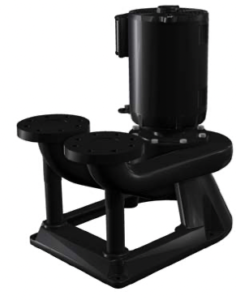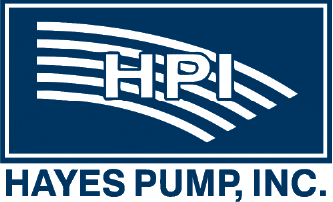Home » Blog » Seven Reasons for a Vertical Pump System Design
Seven Reasons for a Vertical Pump System Design
Spacing saving vertical pump system design reduces footprint in university’s mechanical room.
 A major North American university needed a new science building to address the space requirements based on evolving educational needs. The new laboratory building was constructed to LEED (Leadership in Energy and Environmental Design) standards. An advanced mechanical room was required to ensure the building would operate sustainably and efficiently. The engineering firm faced the challenge of designing a multi-million-dollar system that would adjust to new requirements in terms of flexibility, while maintaining a small footprint. The system, consisting of six layers of piping and 16 pumps, required a specific sequence of installation, and had to meet specific seismic mounting and vibration requirements.
A major North American university needed a new science building to address the space requirements based on evolving educational needs. The new laboratory building was constructed to LEED (Leadership in Energy and Environmental Design) standards. An advanced mechanical room was required to ensure the building would operate sustainably and efficiently. The engineering firm faced the challenge of designing a multi-million-dollar system that would adjust to new requirements in terms of flexibility, while maintaining a small footprint. The system, consisting of six layers of piping and 16 pumps, required a specific sequence of installation, and had to meet specific seismic mounting and vibration requirements.
A vertical space saving design was chosen for the following reasons:
- Its vertical mount allows the pump to fit in tight spaces
- The design integrates into the pump volute the turns in pipe at suction and discharge points (which is usually a part of a standard vertical inline installation) - yet the product is still comparable in efficiency - or in some cases higher
- Same-size suction and discharge connections simplify piping and make it easy to install.
- Pull-out design makes for easy maintenance and service without having to disturb the volute,
motor, or piping. - Double volute design extends the pump’s life cycle and helps reduce radial loads, internal recirculation, and turbulence - and also increases efficiency.
- The pumps were built with ductile iron casings and have a built-in ductile iron pump bases. This material increases the longevity of the pump substantially.
- This material of construction does not change the flange rating, which remains a 150LB ANSI connection.
Since the new building was designed to be independent from the university’s temperature control distribution system, it is able to take heat from that system when there is excess, or contribute heat into the loop. It also has the ability to optimize either electrical or gas power by shutting down the heat recovery chillers to run the boilers if electricity prices climb higher than gas prices.
This vertical space saving design has proven to be the perfect solution because of its compact footprint which fits the requirements of the small mechanical room. Also, the rigid and reliable mounting service met seismic readiness requirements due to the low turbulence of the pump.
As reported March 15, 2018 by: Jim Swetye, Grundfos



